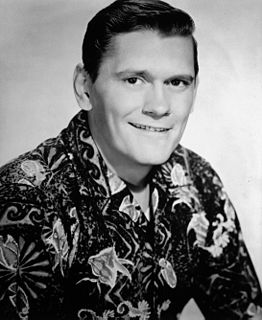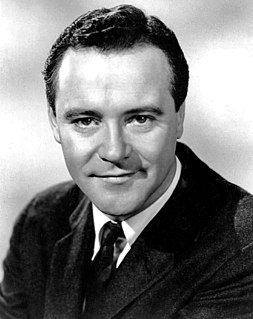A Quote by Dick York
Piper insisted she had to be out of breath when we played this one scene, so she ran around the block. Thank God she wasn't doing a crucifixtion scene; we would have had to nail her to the wall.
Related Quotes
I think Julianne Moore is very, very good. I've worked with her. We did Surviving Picasso. I remember one scene we did together. She had to have a nervous, a mental, breakdown in this one scene. I didn't have many lines. I just had to make sure I knew I came in on cue all right. And I was just watching her walking though the rehearsal. I thought I know what she's doing, "This is going to be terrific." So they said, "Are you ready" and she said, "Yeah," "Ok, roll the camera." And all in one take.
My grandmother lived the latter years of her life in the horrible suspicion that electricity was dripping invisibly all over the house. It leaked, she contended, out of empty sockets if the wall switch had been left on. She would go around screwing in bulbs, and if they lighted up, she would fearfully turn off the wall switch and go back to her Pearson's or Everybody's, happy in the satisfaction that she had stopped not only a costly but dangerous leakage. nothing could ever clear this up for her.
I remember watching Meryl Streep in, The River Wild. There's this scene where she's has a gun pointed at her, it's absurd in a lot of ways. Someone pulls a gun on her I think, I'm not really fully aware of the scene and she just, she starts, you see her terrified. And then all of a sudden she starts to burst out laughing. She starts laughing. Like she can't stop laughing. Because she's terrified and she's emotional and there are no rules to what you're supposed to feel. That to me is like A number one, that's the thing I have to remind myself all the time.
At that moment a very good thing was happening to her. Four good things had happened to her, in fact, since she came to Misselthwaite Manor. She had felt as if she had understood a robin and that he had understood her; she had run in the wind until her blood had grown warm; she had been healthily hungry for the first time in her life; and she had found out what it was to be sorry for someone.
Now hoppin'-john was F. Jasmine's very favorite food. She had always warned them to wave a plate of rice and peas before her nose when she was in her coffin, to make certain there was no mistake; for if a breath of life was left in her, she would sit up and eat, but if she smelled the hopping-john, and did not stir, then they could just nail down the coffin and be certain she was truly dead.
The girl had a certain nobleness of imagination, which rendered her a good many services and played her a great many tricks. She spent half her time in thinking of beauty, bravery, magnanimity; she had a fixed determination to regard the world as a place of brightness, of free expansion, of irresistible action, she thought it would be detestable to be afraid or ashamed. She had an infinite hope that she would never do anything wrong. She had resented so strongly, after discovering them, her mere errors of feeling.
She wondered how people would remember her. She had not made enough to spread her wealth around like Carnegie, to erase any sins that had attached to her name, she had failed, she had not reached the golden bough. The liberals would cheer her death. They would light marijuana cigarettes and drive to their sushi restaurants and eat fresh food that had traveled eight thousand miles. They would spend all of supper complaining about people like her, and when they got home their houses would be cold and they'd press a button on a wall to get warm. The whole time complaining about big oil.
She looked at him then, but his image blurred behind tears that swelled into her eyes. She must leave. She must leave this room, because she wanted to hit him, as she had sworn she never would do. She wanted to cause him pain for taking a place in her heart that she wouldn't have given him if she'd known the truth. "You lied to me," she said. She turned and ran from the room.
She has never messed up a single take yet. Recently I was in a scene and there was a table covered with a cloth. When the director said cut, I saw a black nose and two paws inching out from under the cloth. She had hidden there without making a sound until we were done with the scene. She wanted to be nearer to me.
One night she hid the pink cotton scarf from her raincoat in the pillowcase when the nurse came around to lock up her drawers and closets for the night. In the dark she had made a loop and tried to pull it tight around her throat. But always just as the air stopped coming and she felt the rushing grow louder in her ears, her hands would slacken and let go, and she would lie there panting for breath, cursing the dumb instinct in her body that fought to go on living
With her foot on the threshold she waited a moment longer in a scene which was vanishing even as she looked, and then, as she moved and took Minta's arm and left the room, it changed, it shaped itself differently; it had become, she knew, giving one last look at it over her shoulder, already the past.




































